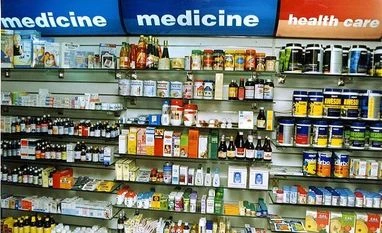Mumbai-headquartered Wockhardt is charting a turnaround plan, riding on its promising antibiotic pipeline, led by a candidate codenamed WCK5222.
Rarely, an undertrial novel drug developed in India is sought after by doctors to save patient lives. WCK5222 has already saved five patients here under a compassionate use programme.
WCK5222 — Cefepime-Zidebactam — is an injectable novel combination antibiotic that has been granted qualified infectious disease product (QIDP) status by the US Food and Drug Administration (USFDA). It targets several critical and high-priority superbugs listed by the World Health Organization (WHO), the Centers for Disease Control and Prevention (CDC) and the USFDA.
As the drug candidate addresses unmet needs in the management of difficult-to-treat infections, USFDA has approved an abridged clinical development for WCK5222.
Basically, the drug is effective against all the major superbugs that have become resistant to almost all antibiotics used today. This is often referred to as multi-drug resistant (MDR) or extensively-drug resistant (XDR) pathogens.
Globally, mortality rates in patients infected by MDR superbugs are over 30 per cent.
More than 40 peer-reviewed articles have appeared in medical journals, and thus Indian doctors are now seeking to use the drug under compassionate grounds to save patient lives, the company said.
Sachin Bhagwat, senior vice-president, Wockhardt R&D centre, told Business Standard: “Under compassionate use, lives of five critically-ill patients (including patients with cancer, immunosuppression, bone marrow transplants) not responding to even last-line antibiotics, were saved.” He added that the company has also received compassionate use requests from the UK and some South Asian countries.
Before the drug is used under compassionate grounds, one has to demonstrate — through laboratory testing — that the pathogen that is infecting the patient is susceptible to WCK5222. So, this activity takes place at our R&D centre in Aurangabad as the drug is not available in the market.
“A doctor applies to the DCGI (Drugs Controller General of India) online, and sends us samples or isolates (pathogens isolated from urine or blood) them. It takes around one day or so to give the results. The drug is then shipped to the location of the patient. The total turnaround time is around 5-7 days after the doctor triggers for use of WCK5222 on compassionate grounds,” Bhagwat said.
Thus, some factions in the medical community have requested for emergency use authorisation (EUA) for WCK5222.
Abdul Ghafur, consultant, infectious diseases at Apollo Cancer Institute, Chennai, and managing trustee, AMR Declaration Trust, has written to the DCGI seeking EUA of two new antibiotics, including WCK5222, to save patient lives.
Ghafur told Business Standard that he has asked the Indian regulator to allow EUA of two molecules — Cefiderocol (already approved in the US) and Wockhardt’s Cefepime-Zidebactam (which is in phase 3 trials) — in order to save patient lives.
Compassionate use logistics takes time, and serious patients do not survive that window.
“Antimicrobial resistance (AMR) and the rise of superbugs is as big a health emergency as was Covid-19. We should consider EUA now to save many patient lives,” Ghafur said. He added that every hospital in the country is now treating a patient with drug resistant pathogen infection.
Meanwhile, riding on the initial success of WCK5222, Wockhardt is eyeing a turnaround. It is betting big on the overall antibiotic pipeline (see chart).
Wockhardt posted revenues of Rs 2,693 crore for 2022-23, down 17 per cent. The company’s net loss widened to Rs 621 crore in FY23, from Rs 411 crore in the previous year. At present, Wockhardt’s long-term debt is around Rs 490 crore or so, said Deepak Madnani, chief financial officer, Wockhardt.
He added, “Post launch of WCK5222, our overall debt will hardly be anything. We had a huge debt earlier of around Rs 3,000 crore about five years back, but today, we have already reduced that. We have achieved a huge debt reduction because we also have to run our clinical trials for our NCE pipeline.”
Around $20-25 million is required for completion of third-phase trials of WCK5222 — this has been partly tied up and the rest is in process.
Around one-third of the study on 535 patients globally has been done. Indian patients would be 15 per cent of the global trial spread across sites in the UK, Latin America, US, China and India.
Wockhardt plans to complete the trials within a year and submit the new drug applications (NDAs) by the end of 2024.
Unlock 30+ premium stories daily hand-picked by our editors, across devices on browser and app.
Pick your 5 favourite companies, get a daily email with all news updates on them.
Full access to our intuitive epaper - clip, save, share articles from any device; newspaper archives from 2006.
Preferential invites to Business Standard events.
Curated newsletters on markets, personal finance, policy & politics, start-ups, technology, and more.
)